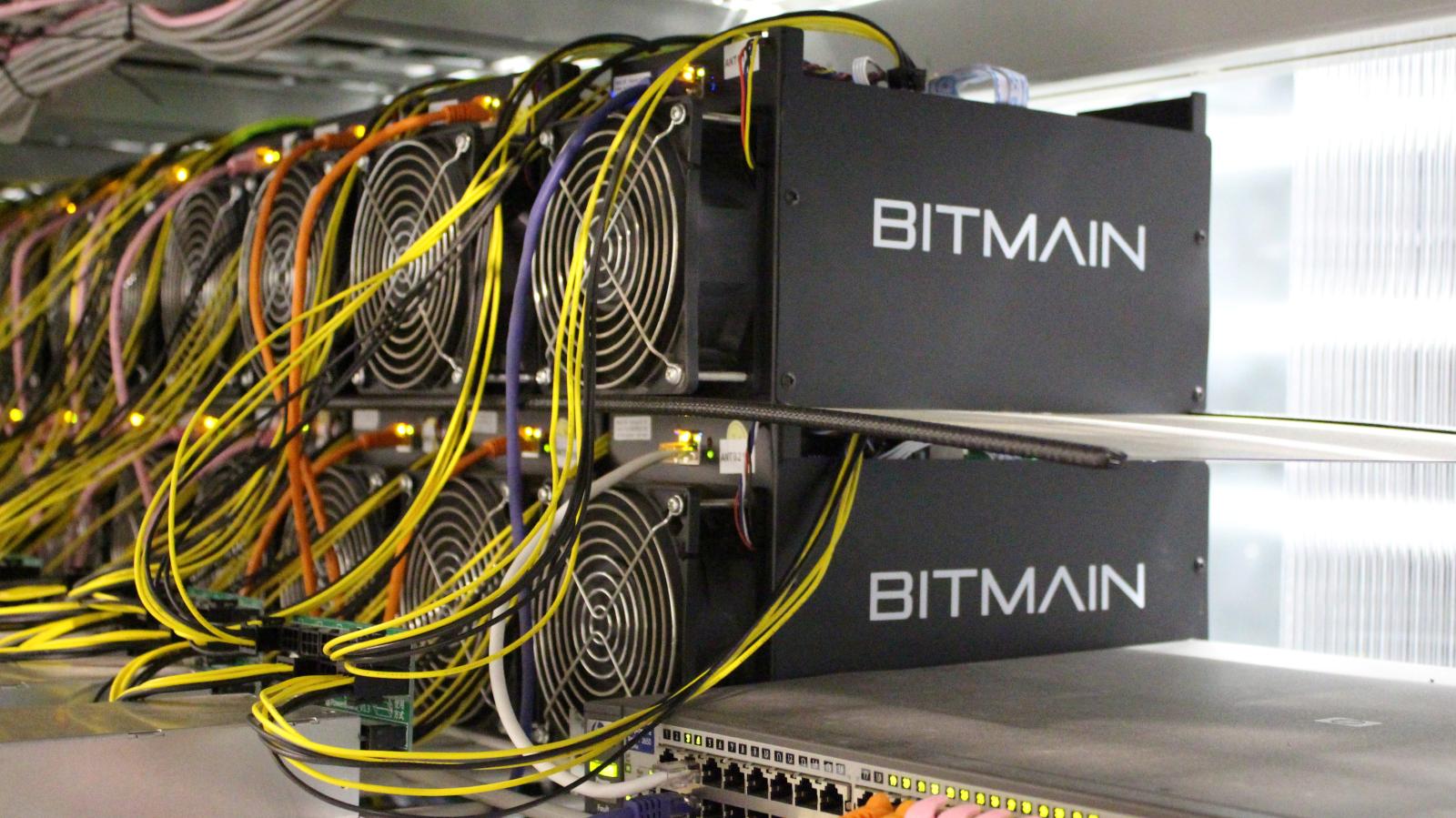Specifically, the stopped-up channels of global trade and commerce have delayed shipments of “miners,” the PlayStation-sized computers that run day and night to mine bitcoin.
This intrusion of the real, physical world into the realm of the virtual has bitcoin mining companies chartering jets to move their miners, training themselves to repair faulty computers, and waiting impatiently for ports to release their imported machines.
And in this crypto bull market, delays are critical. “Every day that a miner is not online is a missed revenue opportunity,” said Charlie Schumacher, a spokesperson for Marathon Digital Holdings, a Las Vegas-based mining firm.
The cost of a bitcoin mining computer has tripled
For Marathon, 2021 has been a big year; by mid-year, it had ordered nearly 130,000 miners from Bitmain, a Chinese manufacturer shipping the machines out of its factory in Malaysia. The advance orders proved to be a wise decision, Schumacher said. Marathon locked in an average price of around $3,000 per machine, but given how the value of bitcoin has soared, an order placed today will run to nearly $10,000 per machine.
Bringing the machines to Marathon’s facilities in Montana and Texas began proving troublesome, however. By late summer, said Fred Thiel, Marathon’s CEO, the door-to-door delivery time for a miner had expanded to 30 days, nearly twice as long as in the spring.
“The global logistics issues had forced people who traditionally ship by sea to shift their high-value cargo to air,” Thiel said. Freight forwarders weren’t easily able to find cargo space on commercial flights. “And the other bottleneck was customs processing at US airports upon arrival.” Marathon’s computers had been arriving at Chicago’s O’Hare International Airport, which had grown jammed with imports.
In October, Marathon began chartering its own planes to fly miners from Malaysia to the US. “It’s like we’ve become a specialized logistics handler,” Thiel said. Marathon was also able to route its flights directly to Dallas, where “customs had more capacity to process shipments,” he said. “I hope things get better towards the spring. But as long as it makes sense, we’ll keep chartering planes.”
Bitcoin mining companies are pulling their machines out of China
Last year, the mining company BitDigital began relocating its machines out of China, to its sites in the US and Canada. It was as if the company had an inkling of what was to come, said Sam Tabar, BitDigital’s chief strategy officer. In May 2021, when the Chinese government indicated it would ban all cryptocurrency mining, BitDigital still had around 20,000 machines in the country. “At that point, we accelerated the migration,” Tabar said.
Most of BitDigital’s machines have reached the company’s sites in the US and Canada. “They’re delicate machines,” Tabar said, “so they have to be packed in Saran Wrap and then packed into crates very delicately. They don’t always make it to us intact. We have to run diagnostics on every machine once it’s here, and some have gotten dust in them or been rattled during shipping.”
In the perfect storm of supply chain problems, the migration of machines was hit by severe delays, some stretching as long as a month. One last batch of machines—fewer than a thousand, Tabar said—is still held up at the docks in New York. The container was sitting on the ship for a while, Tabar said, and is now on land, waiting to be released.
Buying new machines in a hurry isn’t an option, Tabar noted. “The wait could run into some time next year, and even then there’s no promises,” he said. “In crypto, that’s a long time.”
How to make do during the supply chain crisis
Companies are encountering other kinds of delays as well. Riot Blockchain, a mining company headquartered in Colorado, wanted to construct two new buildings on its bitcoin farm in Texas, where a technology known as immersion cooling would drain the heat from all the whirring machines. But the original plans involved a 36-week lead time to procure the requisite steel, said Trystine Payfer, a spokesperson for Riot Blockchain. The company opted, instead, for an aluminum structure manufactured by the Canadian firm Sprung, which could be assembled in half the time.
For Toronto-based Hut 8 Mining, the tangles in the supply chain forced a different kind of creativity. It was no longer practical to send faulty miners back for repair to MicroBT, the firm’s manufacturer in China, said Sue Ennis, Hut 8’s head of investor relations and corporate development. And since newly purchased machines also took inordinately long to arrive, it was important to use the miners that Hut 8 already had past their recommended 18-24 month lifespan.
“So we became an authorized repair shop for MicroBT—the only one in North America and Europe,” Ennis said. Hut 8 now fixes not only its own machines but also those of others. “Our team is now trained to extend the lifespan of these machines, and if pushed, they can go to even five years. If it weren’t for the supply chain issue, we might not have focused on this as hard as we did at all.”







